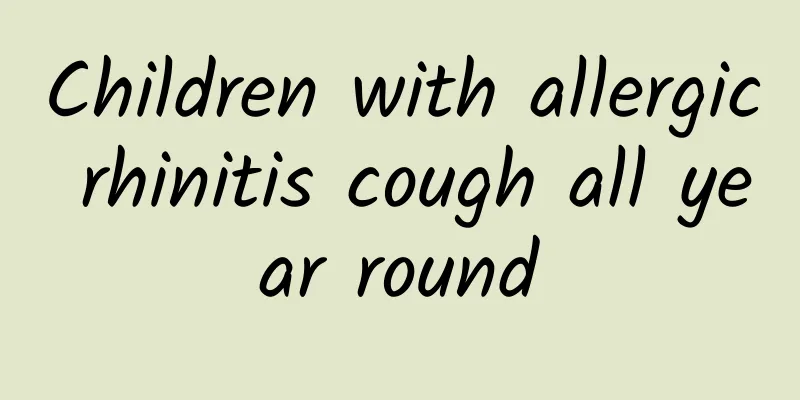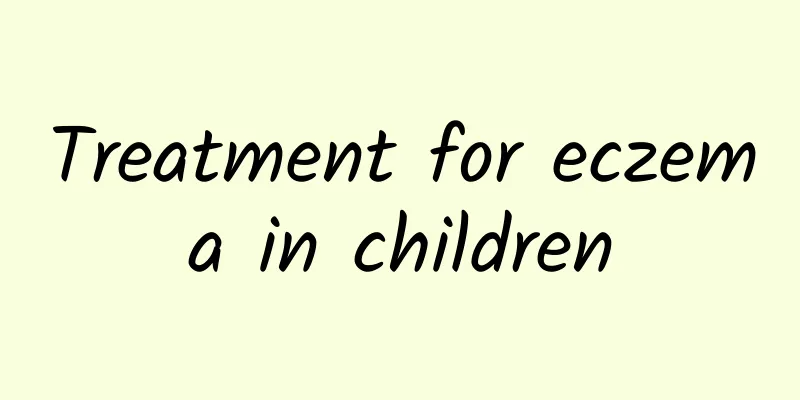Does a hernia in a child require surgery?

|
Whether a child's hernia requires surgery depends on the type and severity of the hernia, but in most cases, especially for inguinal hernias, surgery is the only effective treatment because hernias will not heal on their own and delaying treatment may lead to serious complications. Parents should take their children to the doctor as soon as possible and have a professional doctor evaluate the condition and treatment plan. 1 Causes of hernia in children: Hernias in children are usually caused by incomplete closure or developmental defects of the abdominal wall muscle tissue. During the fetal period, certain passages in the groin should close naturally as they develop after birth. If these passages are not closed, tissues in the abdominal cavity, such as the intestines or other organs, may protrude and form a hernia. Premature babies or low birth weight babies are more likely to develop because their abdominal wall muscles may be weakly developed. Repeated coughing, straining during bowel movements, etc. may also increase the risk of hernia. 2Why surgery is the first choice: The protruding part of the hernia may temporarily return to the body cavity, which is called "reducible hernia". However, once "incarceration" or "strangulation" occurs, that is, the protruding part is stuck and cannot return to the body cavity, it will not only cause severe pain, but may also lead to life-threatening complications such as intestinal ischemia and necrosis. Surgery is currently the safest and most effective way to treat pediatric hernia. Surgery can completely solve the hernia problem and avoid recurrence or complications. 3 Methods of hernia surgery in children: Hernia surgery usually involves high ligation of the hernial sac, which is a minimally invasive and routine procedure. Surgical methods include: Open surgery: The hernia sac is repositioned and ligated through a small incision. It is suitable for most children. Laparoscopic surgery: A camera and surgical instruments are inserted through tiny incisions. This is more suitable for children with bilateral hernias or those who need to explore both sides at the same time. Robot-assisted surgery: Some specialized hospitals also offer this method, which is more precise but requires higher equipment and costs. 4. Postoperative care and precautions: After the operation, parents should pay attention to the child's activities not being too strenuous and avoid behaviors that increase intra-abdominal pressure, such as crying loudly or coughing violently. At the same time, the surgical site should be kept clean and dry to prevent infection and follow-up visits should be scheduled. Surgery is a reliable way to cure hernia in children. Parents do not need to worry too much about the risks of surgery, because under the protection of professional anesthesia and surgical teams, this type of surgery is mature and safe. If a child is found to have a mass in the groin or abdomen, he or she should be taken to the hospital for examination as soon as possible to avoid missing the best time for treatment and to ensure the healthy growth of the child. |
<<: What are the hazards and side effects of neonatal jaundice?
Recommend
How to treat recurrent fever in children with pneumonia
Children with pneumonia and recurrent fever need ...
How to treat a child's cough at night How to use medicine for a child's cough at night
Children's cough at night has caused trouble ...
Early symptoms of mumps
The early symptoms of mumps mainly include fever,...
Answers to questions about the contents of mid-term examination for children with kidney disease
Children are a group that is prone to kidney dise...
How to care for children with acute laryngitis
How to care for children with acute laryngitis? I...
The most common treatments for mumps
We know that mumps is an infectious disease. Pati...
Can children with diarrhea take Enteritis Ning tablets?
Whether children with diarrhea can take Changyan ...
Principles of treatment for patent ductus arteriosus in neonates
The treatment principles for patent ductus arteri...
Is muscular dystrophy hereditary?
Muscular dystrophy is a hereditary disease with m...
Is massage useful for children with diarrhea?
Massage can help children with diarrhea, but it n...
How is polio transmitted?
Poliomyelitis, I believe everyone is familiar wit...
How to treat and care for infant allergic eczema
At present, oral medications should be avoided as...
How to prevent acute laryngitis in children Four ways to prevent acute laryngitis in children
Acute laryngitis in children is a common acute in...
How to treat a one and a half year old baby's night cough?
If your baby always coughs at night, it will affe...
Can diarrhea in children be cured?
Experts are explaining some of the causes of diar...









